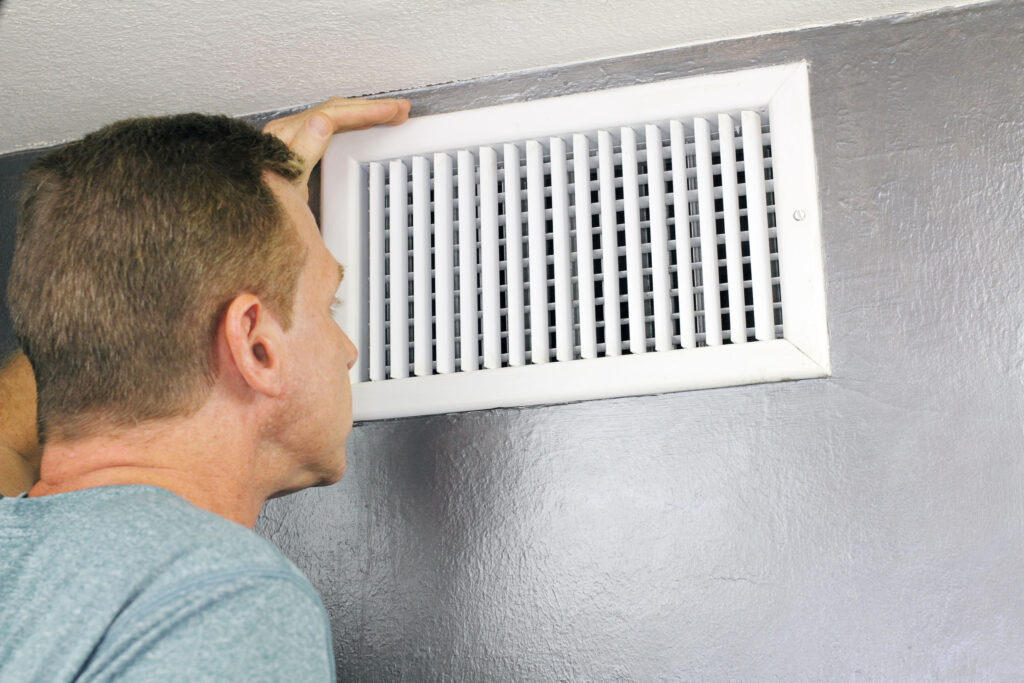
Noticing water dripping from your air vents? It’s a frustrating and potentially damaging problem, especially during the hot, humid summers in Boston and Billerica. While your air conditioning system does draw moisture out of the air, it shouldn’t be dripping water indoors. If it is, there’s likely an underlying issue that needs attention. Acting quickly can help you avoid water damage, mold growth, and emergency HVAC repairs.
As your local team providing comprehensive HVAC and air conditioning services throughout the Boston area, we’re breaking down the most common reasons for AC vent leaks, what steps you can take on your own, and when it’s time to call in a professional.
What Can Cause Water To Leak from an Air Vent
Several HVAC issues can cause condensation or water buildup that eventually leaks from a vent:
- Clogged condensate drain line: When the drain line that removes moisture from your AC becomes clogged with dirt or algae, water can back up and overflow into your ductwork.
- Frozen evaporator coils: Ice buildup on the coils can melt and overflow once the system shuts off, causing water to drip through the vents.
- Poor insulation around ductwork: In humid conditions, poorly insulated ducts can collect condensation, especially in unconditioned spaces like attics.
- Leaky or disconnected ducts: Gaps in your ductwork can allow moisture to build up or collect from surrounding air, eventually dripping through vents.
- Full or overflowing drain pan: If your AC’s condensate pan is damaged or full, it can’t properly catch and drain moisture, which may spill over into your vents.
- Incorrect AC size or airflow problems: Systems that are too large or have improper airflow may cycle inefficiently and struggle to manage humidity levels, leading to excess condensation.
DIY Troubleshooting & Repairs
Some issues can be resolved without the need for a service call. Here are a few steps homeowners can safely take before calling for professional help:
- Turn off your AC: Stop the system immediately to prevent further water buildup and reduce the risk of electrical damage.
- Check your air filter: A dirty filter can restrict airflow and cause frozen coils. Replace it if it’s dirty.
- Inspect the drain line: If accessible, check for visible blockages or kinks in the line and clear any debris you can reach.
- Look for signs of ice: If your coils are frozen, let the system thaw completely before restarting it.
- Check your thermostat settings: Make sure your fan isn’t set to “on” continuously, which can cause water to be blown off the coils into the ducts.
When To Call for Professional Repairs
If the water leak doesn’t stop or if you suspect damage to your system or ductwork, it’s time to bring in an expert. In particular, you should contact a professional HVAC technician if you notice any of these signs:
- Water continues leaking after filter changes and basic troubleshooting
- You notice mold or musty odors coming from the vents
- There are signs of water damage around ceilings or walls
- The AC frequently turns off and on or fails to cool your home
- You can’t access or safely inspect drain lines, coils, or ductwork
A trained technician can inspect the full system, identify the root cause, and make sure your AC is draining, cooling, and circulating air properly again.
Schedule AC Repairs with Our Team Today
If your air conditioner is leaking water from the vents, don’t wait for the issue to get worse. The experienced team at Boston Unique Indoor Comfort is here to help with honest guidance, straightforward pricing, and AC repairs that restore your system’s performance. Whether it’s a clogged line, damaged duct, or something more complex, we’ve seen it before—and we’ll handle it efficiently.
Contact us today to schedule AC repair in the Boston area.
